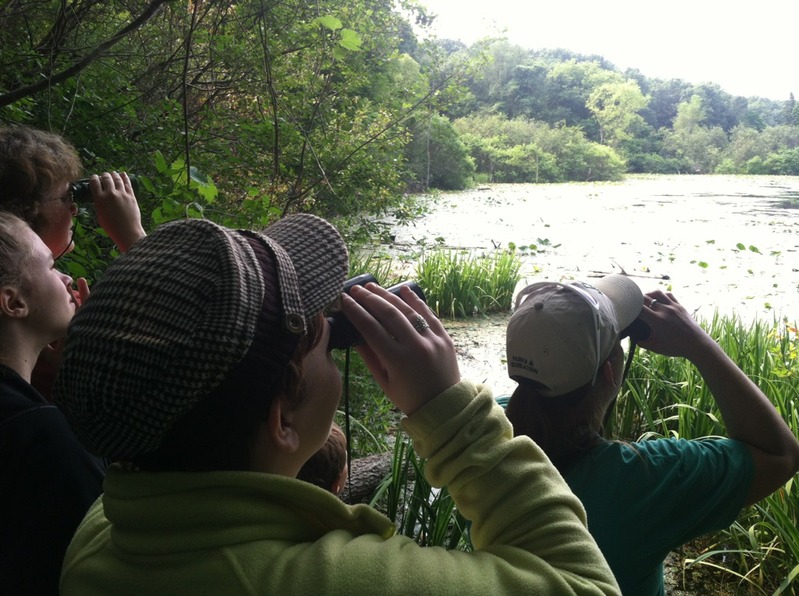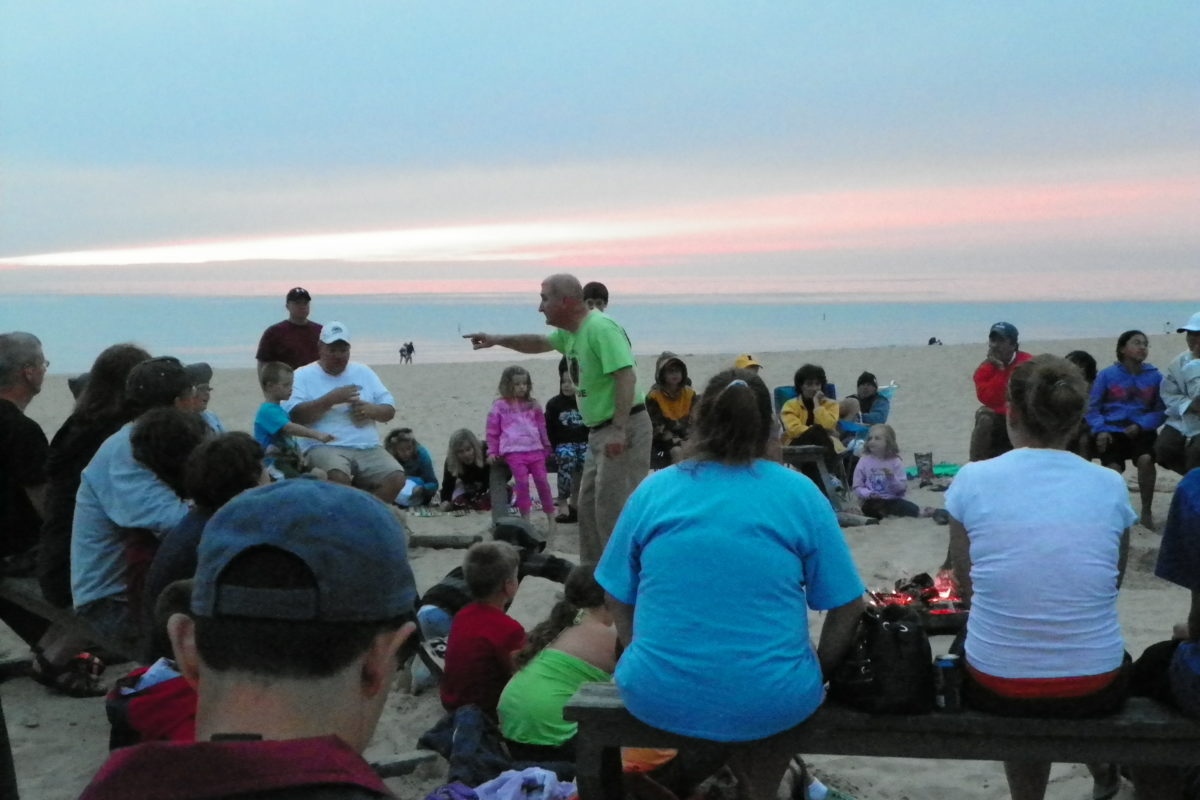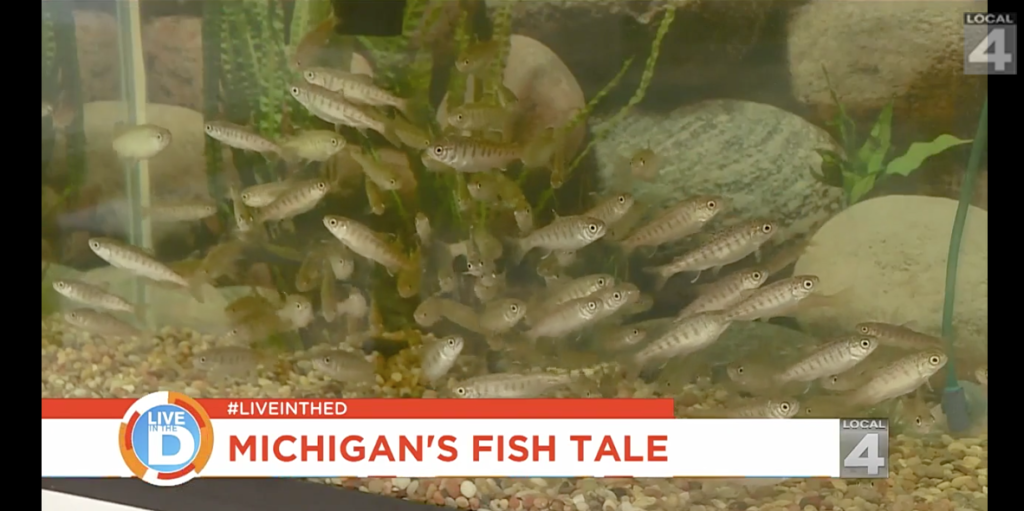For most students, school is out, but that does not mean learning has to stop.
People of all ages have the opportunity to participate in a variety of outdoor learning activities taking place at state parks and recreation areas across Michigan this summer. Topics cover anything from black bears to astronomy and everything in between.
“This is a homework and test-free zone where kids, and adults, can be themselves and enjoy the world around them,” said Samantha Rettell, an eight-year veteran explorer guide from Algonac State Park.
The State Park Explorer Program, headed by the Michigan Department of Natural Resources, was introduced in 2004 to educate and entertain state park visitors through hands-on learning activities. Now over 40 state parks and recreation areas participate in the program during the summer months.
Summer statewide programs
This year the State Park Explorer Program will conduct three “themed” weeks and one special summer-long program.
One of the favorites for explorer guides and participants alike is the Hook, Line and Sinker program.
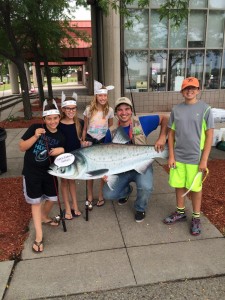
“My favorite part of the [State Park Explorer] program is helping Detroit kids catch their first fish!” said Troy Linton, a part-time explorer guide for Milliken State Park. “I can’t help but really love my job when such an event occurs, and it also feels very rewarding knowing that you have opened a door to allow these children or adults to explore nature even further. I have seen a significant growth in our fishing program from the start of last summer to the end.”
This summer-long program takes place at over 25 state parks from early June through the month of August. It teaches participants the fundamentals of fishing such as setting up your fishing pole, casting, using bait and removing fish from the hook. Parks can provide a rod and reel, but people are welcome to bring their own. Program participants under 17 do not need a fishing license. This educational program is free with purchase of a Recreation Passport.
“The theme weeks started as a way to generate interest and market the programs in the parks by having a consistent theme statewide for the week,” said State Park Explorer Program coordinator Karen Gourlay. “It was also another way to connect staff to each other since there is usually only one explorer guide in each park, and they don’t often get the opportunity to collaborate since they are many miles apart.”
July 11-17 will mark the fourth annual Michigan Mammals Week. Introduced in July 2013, this was the State Park Explorer Program’s first themed weekend. It will celebrate the great diversity of mammal species that call Michigan home.
Special events and activities will take place across the state, including at these state parks and recreation areas in the metro Detroit area:
- Sterling State Park, Monroe, 734-289-2715
- Maybury State Park, Northville, 248-349-8390
- Metamora-Hadley Recreation Area, Metamora, 810-797-4439
- Milliken State Park, Detroit, 313-396-0217
- Pinckney Recreation Area, Pinckney, 734-426-4913
- Pontiac Lake State Park, Waterford, 248-666-1020
- Proud Lake State Park, Wixom, 248-685-2433
- Seven Lakes State Park, Holly, 248-634-7271
Last year, STOP the Invasives Week was added in August, and it will continue this year. Invasive species are a tremendous threat to Michigan’s biodiversity because they often compete with or overtake native species’ food and habitat. From Aug. 1-7, participants can partake in many different activities across 17 different state parks to learn more about invasive species, how to identify them and what people can do to “stop the invasives.”
Feathered Friends Weekend was added this year in June to mark the 100th anniversary of the signing of the Migratory Bird Treaty Act, which provided federal protection for bird species.
State parks celebrated by offering bird-themed programs. Campers at Algonac State Park, for example, participated by taking a hike through the park, learning about the different habitats where birds can be found. Campers also had the chance to win small prizes by playing Birding Bingo, which tested people’s bird knowledge.
Visitors at Holly Recreation Area had the opportunity to learn how to identify birds of prey at Heron Lake Beach. At the McGinnis Lake Camp, campers had fun with “Flames, Fables and Folklore,” a fireside story hour featuring main characters that are famous birds. These are just a few of the activities that visitors had the chance to engage in.
Growing in numbers
Gourlay has been with the Explorer Program since its inception.
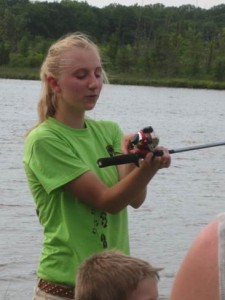
“This program has grown quite a bit,” she said. “A few locations have been added or changed over the years, but overall participation has dramatically increased since the start.”
In 2015, explorer guides offered over 3,800 scheduled programs that were attended by approximately 71,600 participants. In addition, the guides frequently walk the parks, offering educational messages to park guests. An estimated 121,000 people participated in this way.
“Roving the park is a great opportunity to not only educate, but get people excited to come out with me and explore nature,” said Kiki Dunigan, an explorer guide in her third year with Hayes State Park. “Most of my typical day is spent connecting with visitors and then presenting programs.”
There are 42 explorer guides working at 52 different parks during the summer. They are often from a variety of backgrounds and walks of life. Dunigan was previously a stay-at-home mom but an avid hiker, biker and kayaker. From September to June, Rettell is an elementary school teacher.
“When all the other teachers have summer vacation, I come to work the explorer guide position. I can’t imagine my life without it,” Rettell said.
This summer, explorer guides range in age from 18 to 70. Many of them are college students, teachers or retirees. The program gives college students the chance to explore potential careers in natural resources or education. For instance, in addition to working as a part-time explorer guide, Linton works for Detroit’s Outdoor Adventure Center, all while finishing his degree in environmental studies with a concentration in environmental policy and values at the University of Windsor.
The future of conservation
“Programs aimed at getting students and young kids outdoors are important for the future of the state,” said Merisa Campbell of the Michigan Wildlife Council. “Our children are the future, and the earlier they can appreciate the beauty that Michigan has to offer, the sooner they will care about protecting it.”
Rettell relishes helping people connect to the outdoors.
“My favorite part about participating in the program is the look in the eyes of a park visitor when I have taught them something new,” she said. “They can find the wonder and joy in nature no matter what their age. I have seen more grandparents bring their grandchildren to programs because they want their grandchildren to grow up knowing the importance of the world around them. They want their grandchildren to be knowledgeable and protect the earth, not destroy it.”
This story is part of an ongoing effort to increase public knowledge about wildlife conservation and the work needed to make sure that we can continue to enjoy the state’s great outdoors for generations to come. The Michigan Wildlife Council invites people to learn more at hereformichiganoutdoors.local.
Learn more about the State Park Explorer Program at michigan.gov/natureprograms.
Interested in becoming an explorer guide? Learn more
